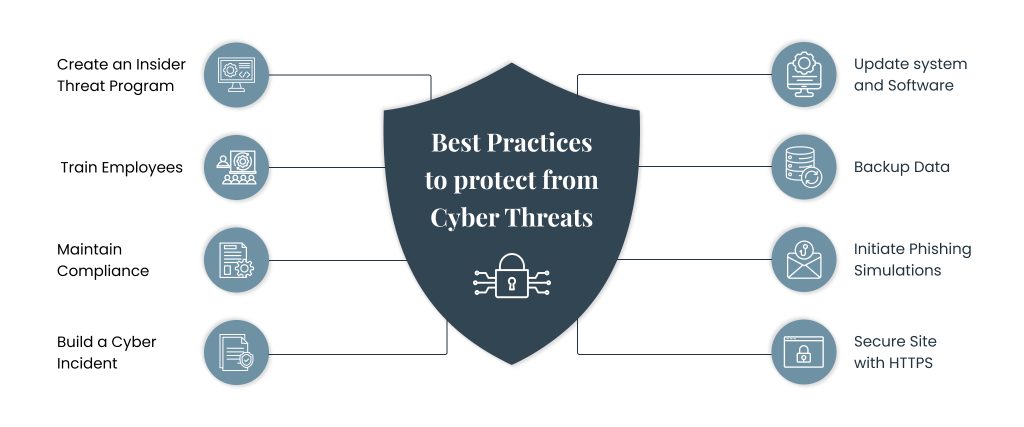
On March 17, 2022, Central Bureau TransUnion SA suffered a cyber attack that saw around three million customers’ data stolen by a criminal third party.
Moscow Stock Exchange and Sberbank, Russia’s largest lender, were hit by a DDoS attack on February 8, 2022.
Then in the same month, global insurance and reinsurance broker Aon was affected by a ransomware attack, causing limited disruption to a number of their services.
These incidents prove that around half of the world’s stock exchanges were the target of cyberattacks last year.
Global financial markets have remained susceptible to cyberattacks, leading to corruption of trade surveillance systems, potentially leaving room for manipulative, unlawful, and abusive trading behaviors.
Swift introduced its Customer Security Programme (CSP) in 2016, hoping to aid participants in preventing cybercrime. This program has helped its users implement crucial security measures for preventing, detecting, and recovering from cyberattacks across the payments, securities, trade finance, and foreign exchange sectors.
This blog discusses the cybersecurity challenges faced by financial organizations and how market participants could be exploited by cybercriminals. Also, learn about the cyber security best practices to overcome cyber threats.
Role of SEC and Regulatory Bodies in Handling Cybersecurity Concerns
The SEC is dedicated to collaborating with federal, regional, local, market, and other partners to track changes and effectively counteract cyber threats. It uses its civil law authority to bring cyber-related enforcement actions that protect investors. The cyber unit focuses on violations involving digital assets and cyber-related manipulations, such as brokerage account takeovers.
SEC Enforcing Investor Protection In Combatting Cyber-linked Security Fraud:
The SEC accused Green United, LLC, a firm based in Utah, its founder, Wright W. Thurston, and one of its promoters Kristoffer A. Krohn of defrauding investors in connection with an unregistered issuance of securities backed by crypto assets.
So, the SEC came up with a civil law jurisdiction to undertake enforcement actions connected to cybercrime that safeguard investors, hold offenders accountable, and discourage further misbehavior.
On July 26, 2023, the SEC implemented regulations mandating companies to reveal significant cybersecurity incidents and annual details about their cybersecurity risk handling, strategy, and leadership. SEC Chair Gary Gensler stated that instances like a corporation losing a factory in a fire or experiencing a cybersecurity event that results in the loss of millions of files can affect investors.
Investors receive cybersecurity disclosures from many public firms. It is to help the companies and investors. These SEC rules will benefit investors, firms, and their markets by requiring cybersecurity disclosure.
These events highlight the importance of cybersecurity in post-trade or general trading. It is crucial in establishing transparency between investors and broker-dealers.

Cybersecurity Challenges in Integrated Pre- and Post-trade Financial Operations
The modern finance system relies heavily on the integration of pre-trade and post-trade activities. However, this integration introduces complex cybersecurity challenges that financial institutions and market participants must navigate to ensure the security and integrity of operations.
Vulnerabilities in Integrated Pre- and Post-trade Operations
The integration of pre-trade and post-trade activities can create vulnerabilities that cybercriminals may exploit, leading to potential security breaches. Several factors contribute to these vulnerabilities:
- Expanded Attack Surface: The convergence of pre-trade and post-trade operations increases the number of potential entry points for cyberattacks.
- Sensitive Data Exchange: Information exchanged between these stages may involve confidential data. Weak security measures can expose this data to interception or manipulation.
- Interdependency: Interconnecting pre-trade and post-trade processes means that an attack on one stage can disrupt subsequent activities, leading to cascading disruptions.
- Shared Infrastructure: If vulnerabilities are present in shared infrastructure, cyberattacks can impact both pre-trade and post-trade operations.
- Latency and Speed: Maintaining speed while ensuring security is a challenge, as latency issues might arise from implementing robust security measures.
- Regulatory Compliance Complexity: Compliance with differing regulatory standards across integrated stages complicates the establishment of consistent cybersecurity practices.
- Complex Supply Chain: Third-party vendors and providers involved in integrated operations can become potential entry points for cyberattacks.
Mitigating Vulnerabilities
To address these vulnerabilities, financial institutions and market participants need to adopt a multi-faceted approach to cybersecurity:
- Secure Integration: Implementing secure integrations like API integration helps to minimize vulnerabilities during data exchange between pre-trade and post-trade operations.
- Access Controls: Enforce strong access controls to restrict unauthorized access to pre-trade and post-trade systems.
- Encryption: Apply encryption to protect data throughout its lifecycle, ensuring its confidentiality during both transit and storage.
- Continuous Monitoring: Utilize advanced monitoring and threat detection systems to promptly identify and respond to suspicious activities.
- Incident Response Planning: Develop comprehensive incident response plans that cover both pre-trade and post-trade stages, ensuring a coordinated and efficient approach to cybersecurity incidents.
Final Thoughts
In conclusion, the escalating frequency of cyberattacks targeting financial markets underscores the critical need for robust cybersecurity measures. Such attacks can lead to manipulation, unlawful trading, and system corruption, heightening the risk of market disruptions. Regulatory bodies, such as the SEC, take an active role in addressing cybersecurity concerns through collaboration and enforcement actions. A holistic approach with adaptive strategies and collective efforts is essential in maintaining the integrity and stability of modern trading markets. Join us to enhance post-trade efficiency and reinforce against cyber threats with cutting-edge technology.


